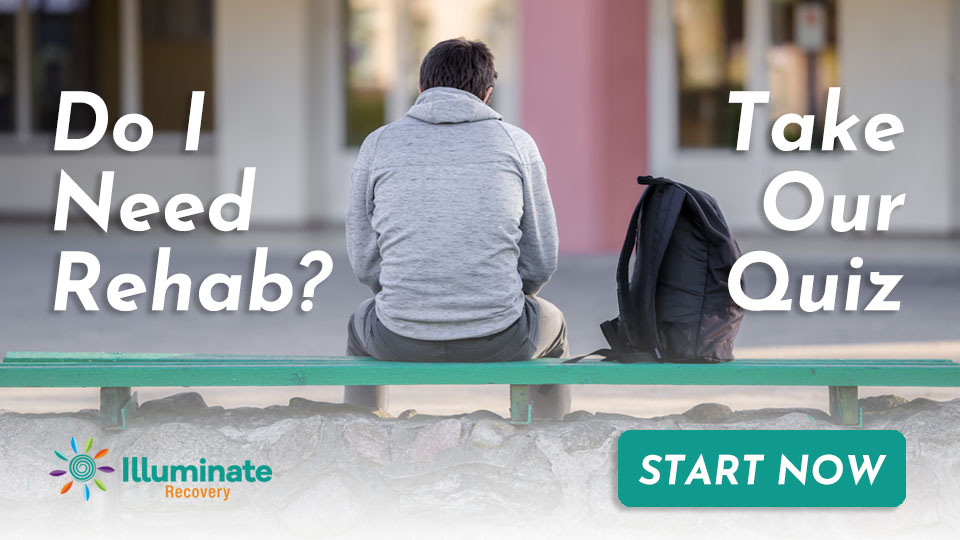In the world of someone with a substance use disorder (SUD), admitting to needing help is the first step on the road to recovery. Until someone can fully admit they need help, they cannot heal from their dependency on drugs and/or alcohol. However, once many see the “sticker price” for what inpatient care costs, they often decide that it is ultimately not worth it. The cost might not be the only thing that is prohibitive for a person and outpatient addiction services to combat their SUD might be the better option.
Why Some Might Not Get Inpatient Treatment
There are multiple reasons why someone might elect not to get inpatient treatment. They are:
- Inability to pay/cost of inpatient treatment – This is the first and most common reason people choose not to seek to go to rehabilitation therapy. The price of living on-site at a medical facility while also receiving specialized medical care is a significant cost to many people and their families. Sometimes, insurance will not cover an inpatient treatment for a person or they simply do not cover enough of the expenses for a patient.
- Social stigma – It is one thing to admit to oneself that they need treatment but it is another thing to have to admit that to others, especially family and friends. Many will think that their problems are not so insurmountable that they cannot be solved by themselves, which is unwise and untrue – it is always encouraged for any person with SUD to receive professional help from a licensed therapist.
- Work issues – Many jobs throughout the years have been exceedingly supportive of their employees and their quest to get treatment, so much so that time off is excused and accepted. There are some jobs, however, who are not so enlightened and do not understand the necessity of treatment for a person. Many people fear that taking significant time off of their job, specifically to get help with addiction issues, might cause them to lose their job.
- Family obligations – For parents, especially single ones, inpatient might not be an option because they have children who rely upon them. Childcare is expensive, especially privately so, and without affordable childcare or a family member to step in and help shoulder that burden, a person with SUD might not see inpatient as a reality because, simply, it is not. When this happens, one of their main motivating factors for getting better – their child(ren) – might be the situation that is keeping them from treatment at all.
What Does Outpatient Treatment Mean?

Outpatient treatment does not mean, as the name might suggest, that you are getting treatment outside a medical facility or that you can come or go as you please. Outpatient purely means that you are not admitted to a facility to stay overnight or that the program is designed to separate care and sober living.
When people are admitted to a hospital for surgery, that is an inpatient procedure but there are outpatient surgeries where people can go home the same day as the procedure.
Outpatient care is like any regular doctor’s visit where you have an appointment, you attend your appointment, and then you leave to go “home” or back to a sober living facility. Outpatient care is a less intensive level of care than someone who requires medically supervised detox or inpatient services. In this way it’s more flexible and, once one is no longer in PHP or IOP, the individual has some flexibility to attend outpatient care during the day and work a job or go to school in the evening. Some outpatient programs also offer night programs for those who need to work during the day.
What is the Success Rate of Substance Abuse Treatment?
Unfortunately, there is no definitive answer to this question as it involves a myriad of different variables. The type of drug to which a person is addicted, the amount of times they have sought help, the amount of time in treatment, where they were staying, the type of treatment they received, etc. are all factors in overall success. There is also the subjectivity factor: what looks like “success” to one person might not be another person’s view.
Relapsing is also a concern, and many people relapse several times before they ultimately achieve sobriety. There are, regrettably, people who have gone through a program “successfully” only to use again weeks, months, or even years after their initial treatment.
For this reason, it is hard to pin down a “success” number. By only counting the people who complete rehab programs, the therapeutic community claims an approximate 30% success rate.
Don’t let the numbers dissuade you, however – this is not wholly indicative of a person’s individual experience. Seriousness of purpose and commitment to overcoming SUD is integral to sobriety and personal success.
One thing is absolutely for certain, though – the success rate of someone who does not seek help is 0% across the board.
When is Inpatient Treatment Necessary?
There are specific times where inpatient treatment is necessary. For instance, if you go to the emergency room for a traumatic injury that requires invasive surgery, you will most likely be admitted to the hospital and, therefore, considered “inpatient”. This is primarily owing to the time, resources, and dedicated space needed to house and treat you. If you were to go into the hospital for, say, a broken toe, the resources, manpower, and time needed to treat your injury are significantly less and can be handled by your primary care physician later when the emergency room has alleviated the worst of your symptoms.
The treatment for SUD is much the same. For those who absolutely need more care/resources/time, inpatient might be the better and safer option. There are also cases where the comorbidity of a psychiatric disorder might necessitate the need for a longer stay in a medical facility, under observation by multiple physicians and therapists for safety reasons. A mental health professional would be the best person to make a judgement call on the need for inpatient versus outpatient.
What is the Cost of Rehab?

Since no two SUD patients are the same, their cost of treatment will probably not mirror each other closely, if at all. For that reason, it is important to go over all the financial options available with a financial specialist at the rehab center of your choosing.
At Illuminate Recovery, we have numerous programs available to tailor a treatment plan to fit anyone’s needs. We make it a priority to offer these specialized services in the most affordable way possible for those in the Scottsdale area.
We currently work with most major insurance companies to achieve the lowest out-of-pocket expense for you while also getting you the best care you need to achieve sobriety. Some of our private insurance providers include Cigna, UMR, Humana, United Healthcare, Blue Cross, Aetna, and many others. At this time, we do not accept government-funded medical insurance programs such as Medicare, Medicaid, et cetera.
The cost of drugs and/or alcohol over any period far outweigh the cost of treatment over the same time, which is something important to keep in mind when exploring the price. Many receive a “sticker shock” when they see their bill but do not consider that use of drugs/alcohol is a much higher cost on the day-to-day, not to mention the emotional and physical toll it takes on the person and their loved ones. The cost versus risk analysis will always lean in favor of going to a dedicated and reliable treatment center such as Illuminate Recovery in Scottsdale, Arizona.
Learn more about the cost of going to rehab here.
Does Insurance Cover Outpatient Rehab?
While there is no baseline answer to this without knowing your insurance carrier, it is safe to say an insurance company might be more amenable to covering outpatient care versus inpatient care. Many insurance companies are trying to mitigate and lessen costs and outpatient might be just as attractive a treatment option to them as it is to the patient in terms of payment.
When it comes to insurance carriers, it is important to see what plans they cover for rehab/addiction treatment after assessing what treatment plan is the correct one for you or your loved one.
If you have established Outpatient Care is the correct level for your treatment needs, you can determine if your insurance provider covers that level of care.
For more detailed information about the insurance plans we accept at Illuminate Recovery, please complete our Insurance Verification Form. After completion, a representative will be in touch with you in an 100% confidential manner at no risk/obligation to you.
What Factors Go into the Cost of Addiction Treatment?
There are many factors listed above that go into the overall treatment plan of an individual and, likewise, the cost changes based upon those individual needs.
For example:
- If detox is needed or not
- The level of care required
- The length of the program
- The ancillary services and amenities offered
- The location of the facility
If an individual is heavily addicted to a chemical substance and needs medically supervised detox and round the clock care, their costs are going to be much different than someone struggling with abuse that needs a lower level of care.
For this reason, it is heavily encouraged to schedule a confidential appointment with an admissions representative at the facility you are interested in to see what treatment plan is right for you or your loved one. In this meeting, you can discuss the patient’s background, needs, and overall goals for treatment in a safe, judgement-free setting.
How Illuminate Recovery is Making Addiction Recovery More Accessible to Individuals in Arizona

At Illuminate Recovery, we are dedicated to making sure you or your loved one has the best possible care available to combat their SUD, as well as any other issues that might be plaguing them – all at the most affordable rate available.
Why?
Before we started our program, we saw a growing need for a drug and alcohol rehabilitation center in Scottsdale, Arizona that people could actually afford. So many other treatment centers offer similar services but package them as “luxury” just so they can charge more money. The truth is, fancy bedsheets and spa days aren’t what it takes to overcome a substance disorder.
We work with insurance companies to offer services that are covered to ensure more individuals can receive the care they need and deserve.
Our outpatient treatment options include:
- Medication Assisted Treatment
- Trauma and PTSD
- Group Therapy
- Individualized Therapy
- Dual Diagnosis
- Outdoor Activities
- Job Placement Services
- Relapse Prevention
- And so much more!
At Illuminate Recovery, we care about not only your success in our program but your success when you leave our program, as well. We strive to utilize the very best bespoke therapy plan to treat SUD and the tools to build a better life after rehab treatment. We look forward to working with you or your loved one realize their dream of sober, addiction-free living.
It might not be easy to know if you or someone close to you is battling drug and/or alcohol addiction. If you’re still not sure, start with our quiz: Do I Need Rehab?
We’re here to help you every step of the way.

Having been on both sides of active addition, both the person using, and the person affected by a loved one using drugs and alcohol, Lucas has been involved in recovery since 2009. He has been working in the treatment industry since 2013. Using his personal experience and wealth of knowledge learned from professional development and immersion in the recovery field, he has spoken with thousands of families and helped hundreds of people attain long-term sobriety. In 2020, the opportunity presented to join in and start Illuminate Recovery. Understanding the importance of personalized treatment plans and the complex nature between substance abuse and co-occurring disorders, has helped Illuminate Recovery build a strong curriculum and a phenomenal staff. Illuminate Recovery now has a medical doctor who is board certified in addiction medicine and a psychiatric medical doctor who works side by side with independently licensed therapists to provide compassionate and effective treatment.


